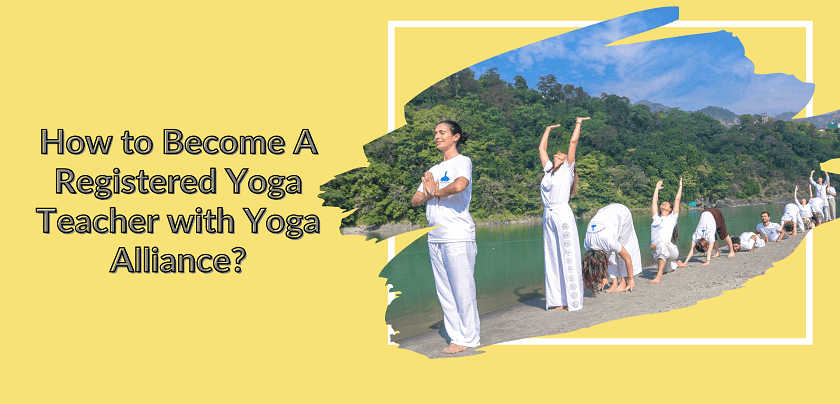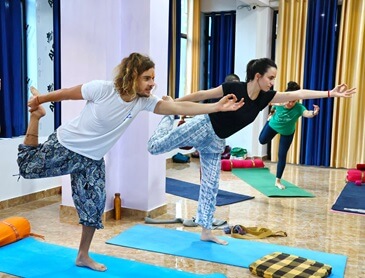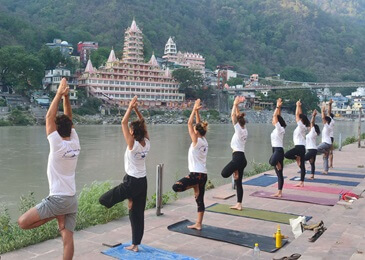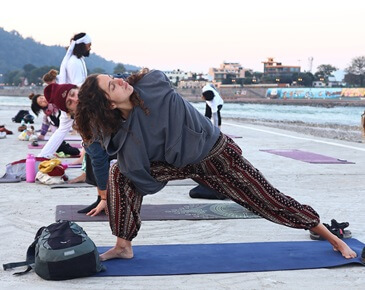
1 Jul. 2019
How do I find the best Yoga Teacher for Yoga Teacher Training?
The importance of a teacher cannot be overemphasized. The teacher plays an important role in guiding the student. the teacher can share his or her experience to help you to avoid mistakes, pitfalls, and dead-end. The teacher's presence conveys the "living experience of Yoga,” something rarely attained by simply reading about it. the consciousness of the teacher elevates the student. Using voice or hands, teachers can adjust you so that the stress and pain you carry may be alleviated. At the same time, they can facilitate you becoming more attuned to your true Self, increasing your sense Of peace and contentment. yoga has become so popular that classes exist in even the most remote areas. Finding a class is usually not a problem, but finding a competent teacher is more difficult. To find a good teacher, it is safest to rely on word of mouth. Advertising can be deceptive in the "real world" and yoga or is no exception.
Training in Yoga is not standardized, either for students or for teachers. There is no bord that certifies all yoga teachers. However, there is a national movement called the Yoga Alliance gaining support for elevating the standards of teacher training. In the meantime, be aware that a "certified teacher" may have trained in a weekend course or in courses lasting several years. When you search for a teacher, ask them about their background. A competent teacher will not be offended by your query. consider asking the following Question:
1. Do you have confidence and a rapport with the teacher?
This is the most important question of all. if the teacher passes the test, the others question are most likely irrelevant. they add credence to the teacher's capacity to establish trust and confidence in you. The teacher should, most of all, be able to inspire you to want to do yoga, to become disciplined. Discipline is both the responsibility of the students, and of the teacher. The teacher's own discipline and love of the practice will pro. duce a contagious fire in the truly interested student. The teacher should also be able to dispel your doubts. This does not mean that teachers arc authorities on every aspect of yoga, lifestyle, and the spiritual realms. It means that their confidence in the tradition and ability to access guidance is strong enough that they trust where they are going, even when they don't see the next step of spiritual life (sadhana). This confidence in the tradition is contagious, and sincere students will be impelled to trust their own innate guidance while using the teacher as a sounding board to check out their own stability.
Your teacher should inspire you without forcing you. If a teacher has a reputation for forcing students to achieve poses, STAY AWAY. There are teachers who injure their students, not necessarily due to lack of anatomical training or safety guidelines, but because they are frustrated at not achieving their own goals. This leads to pent-up anger, resentment, and may come out in the form of pushing students to do more than they are able to. There are numerous instances of good, even great, teachers badly injuring committed students. Some of the students found these physical injuries beneficial in moving them on from stuck places in their life. As for me. I can see no benefit in causing injuries.
2. Does the teacher practice daily exercise and meditation?
Some teachers present their own practice to students; they do not practice on their own. In teaching. they are really giving themselves a workout. This may endanger you, if you are not as strong or flexible as the teacher in some motions. A competent teacher spends more time watching and correcting than demonstrating.
3. Is the teacher certified?
By what organization? How long was the training? Yoga is often taught by people who were not trained to teach, but merely taught how to practice. "Only he who obeys can command."' A competent teacher-training program shows a prospective teacher, not only how to do the exercises, but also when and how to present them, how to adapt them for indi-vidual differences in sex, age, ability, and changes in health. A few certification courses offer more than basic training in anatomy, physiology, and kinesiolou as it relates to Hatha Yoga. This important body information enables a teacher to better analyze your physical potential for reaching your goals through Hatha Yoga without injury.
4. Is yoga a part-time hobby or a full-time profession?
Part-time teachers arc in the majority and can provide guidance at the beginning levels to the average student. Students with special needs (due to changing health conditions and injuries) and committed, persistent students need the assistance of a teacher who has devoted his or her life to this work. Only such a teacher can adequately train other teachers.
5. Does the teacher continue to study with his or her own teacher?
Yoga training influences all aspects of one's lifestyle. In recognizing this. the competent teacher continues to study with his or her teacher, as well as seeking out other competent teachers for consultation. The study of yoga implies immersion to varying degrees in an entire (yogic) philosophy. Philosophy means the "love of knowledge." The love of yoga generates a desire for higher knowledge, more insight, and greater clarity of expression. 6. is the teacher a member of a group of certifiers/ teachers? Yoga teacher associations exist in most states. They exist so teachers can share with their peers and continue to grow without blinders. Keeping an open mind to the benefits of the variety of practices and being in contact with a variety of teachers is important to competent teaching.
These guidelines will assist you in finding the right teacher for you. A well-known yoga teacher, Alice Christensen, writes: "We believe that yoga teachers must be exceptionally conscientious and professional in their work of transmitting to others the exacting discipline of yoga. These personal commitments ensure that teachers avoid any injury or misrepresentation in their classes.
Are You Looking for a Yogi or a Certified Yoga Teacher?
The presence of a teacher can bring attention to qualities you cannot learn from a book—how to incorporate yoga into your lifestyle and how to be yourself and express joy, comfort, and relaxation of effort in living life. Yoga training can influence every aspect of life for the positive, if you reach for it. There are not only a lot of styles of yoga in the world today; there is also a huge assortment of ways that different teachers present the material. One great distinction is the difference between a yogi and a yoga teacher. In general, if you're looking for a yoga cc-ache, make certain that they are certified teacher. They should have completed a teacher training course taught by someone authorized to teach teachers, and they, in rum, are then authorized to teach students. There arc undisciplined people making a living from teaching yoga without being authorized to do so by their teacher. Sonic is "self-taught," and has had "spontaneous realizations from an ascended muter." These types feel their skill as students qualifies them to be teachers. This is not true. A certified yoga teacher has gone through the fire of his teacher's discipline and passed the requisite exams. Regardless of how lengthy or difficult the undertaking, this is a sign of commitment. Make certain that the person with whom you are studying is authorized to teach and continues to seek training for on-going education.
A yogi is altogether different. This is an individual who clearly knows and expresses that her or his path is a spiritual journey to God. While yoga teachers may know tech- niques for relieving pain and stress, creating health, increasing energy, or even therapy for psychophysiological issues, a yogi is a yoga adept who lives a committed lifestyle of nothing but yoga and spiritual practices. Yogis pursue their spiritual path to God living anywhere among the full range of life-styles—from the life of a householder to that of a renunciate monk. Yoga teachers earn their livelihood teaching yoga. They need students to support their life-style and, often, to make them feel good about their contribution to the world.
Yogis usually don't depend upon student income for their livelihood. If they do receive compensation for their teachings, it's by voluntary donation. They have little or no ego-investment in receiving the praises of their students. Their work is done as a selfless service in honor of what their teachers gave them, or as a blessing to God. While yoga teachers are committed and may appear to be devoted, yogis are constantly reverent and devotional. To tell them apart is often not easy. If you are looking for a yogi, my spiritual teacher used to say, test them. Don't make a commitment until you've tested potential candidates for at least six months. Follow their advice and faith-fully practice their teachings, but do not take initiation until you see that they live what they teach and that your own life is better for having taken their advice. The test of a great yoga teacher is that he or she will awaken your innate desire for spirituality and this, in turn, may take the form of a yogi being pulled to you.


